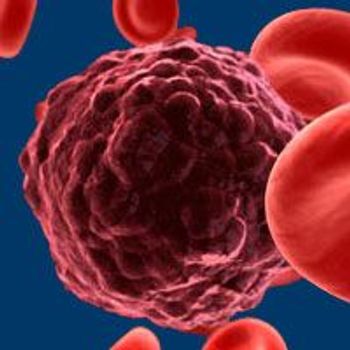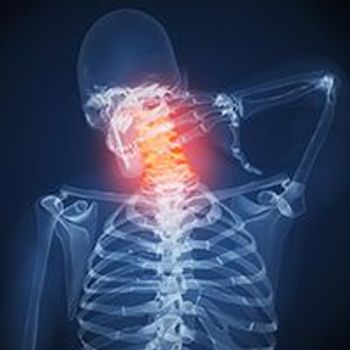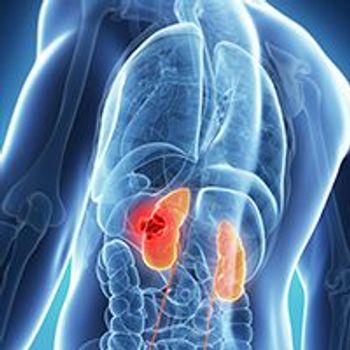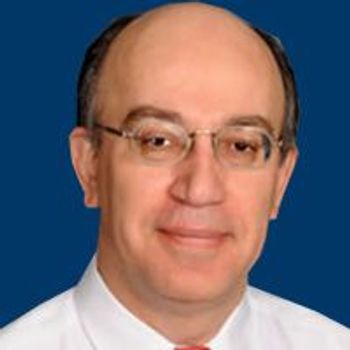
Carl June, MD, discussed the longest-term follow-up data on CAR T-cell therapy so far.

Carl June, MD, discussed the longest-term follow-up data on CAR T-cell therapy so far.

Frederick F. Lang Jr, MD, chair of neurosurgery at The University of Texas MD Anderson Cancer Center, discussed novel approaches to treating GBM.

Ciltacabtagene autoleucel, an investigational BCMA-directed CAR-T therapy, sustained efficacy and durable responses in heavily pretreated patients with relapsed/refractory multiple myeloma.

Treatment with chimeric antigen receptor T cells has induced unprecedented overall response rates and complete response rates in patients with relapsed/refractory B cell malignancies.

February 3, 2021 - The combination of ceralasertib plus durvalumab improved overall response rate in patients with non‒small cell lung cancer who progressed on an anti-PD-1/PD-L1 therapy.

Treatment with pembrolizumab improved progression-free survival after subsequent therapy for patients with PD-L1–positive, relapsed/refractory head and neck squamous cell carcinoma.

Novel strategies are needed to enhance the efficacy of CAR T-cell therapies in patients with acute lymphoblastic leukemia, including new constructs that target more than 1 antigen.

Abhinav Deol, MD, discusses the basics of chimeric antigen receptor T-cell therapy, potential new directions for these products, and the possible impact new products might have on the field.

David G. Maloney, MD, PhD, reviews the latest developments with chimeric antigen receptor T-cell therapy in patients with non-Hodgkin lymphoma.

A review of available evidence has led the American Society for Radiation Oncology to issue a strong recommendation for use of concurrent chemotherapy with thoracic external beam radiation therapy in a subset of patients with incurable stage III non–small cell lung cancer.

Michael Wang, MD, discusses what he hopes to find in the ZUMA-2 trial and his belief that MCL can be cured in his lifetime.

A first-time study of chimeric antigen receptor T-cell therapy in youths with Down syndrome-associated relapsed/refractory (r/r) acute lymphoblastic leukemia produced high remission rates and toxicity results that were similar to those observed in patients with r/r ALL.

Results from a recent study may show why some patients with chronic lymphocytic leukemia are resistant to tisagenlecleucel, while potentially offering a pathway to enhance patient response.

CAR T-cell therapy can induce next generation sequencing negativity in patients with relapsed/refractory acute lymphoblastic leukemia, suggesting a "synergistic" relationship with hematopoietic cell transplant.

The FDA has granted a priority review to moxetumomab pasudotox for the treatment of adult patients with hairy cell leukemia who have received at least 2 prior lines of therapy.

The addition of weekly carboplatin following surgery and radiation therapy did not improve freedom from locoregional relapse in patients with high-risk cutaneous head and neck squamous cell carcinoma.

Both prior chemotherapy and a dependence on glycolysis appear to reduce the potential to develop T cells into chimeric antigen receptor T-cell therapy.

The annual update on oncology treatment highlights the most impactful clinical cancer research and policy developments over the past year in CAR T-cell therapy.

Brentuximab vedotin (Adcetris) has been approved by the European Commission for the treatment of patients with CD30-positive cutaneous T-cell lymphoma after at least 1 prior systemic therapy.

Patients with high-risk renal cell carcinoma who harbor early systemic dissemination with very poor survival prognosis may derive some benefit from adjuvant therapy.

The FDA has granted the the anti–B-cell maturation antigen (BCMA) chimeric antigen receptor (CAR) T-cell therapy bb2121 a breakthrough therapy designation for previously treated patients with relapsed/refractory multiple myeloma.

The European Medicines Agency’s Committee for Medicinal Products for Human Use has recommended approval of brentuximab vedotin (Adcetris) in adults with CD30-positive cutaneous T-cell lymphoma after at least 1 prior systemic therapy.

The FDA today lifted clinical holds placed on 2 phase I trials investigating a gene-edited allogeneic CAR T-cell therapy known as UCART123.

Maintenance therapy with lenalidomide following autologous stem-cell transplantation conferred a survival benefit for patients with newly diagnosed multiple myeloma.

The FDA has awarded Breakthrough Therapy Designation to osimertinib for first-line treatment of patients with metastatic EGFR mutation-positive non-small cell lung cancer (NSCLC).

Patients who received maintenance therapy with rituximab (Rituxan) following autologous stem cell transplantation as treatment for mantle cell lymphoma had a survival advantage, according to results from a retrospective single-center study.

High-intensity local radiation combined with systemic therapy improved overall survival compared with systemic therapy alone in patients with head and neck squamous cell carcinoma.

The FDA has granted a breakthrough therapy designation to cemiplimab (REGN2810) for the treatment of adults with metastatic cutaneous squamous cell carcinoma (CSCC) and adults with locally advanced and unresectable CSCC.

The FDA placed clinical holds on 2 phase I trials investigating a gene-edited allogeneic CAR T-cell (UCART) therapy known as UCART123.

The FDA has granted LN-144, an adoptive cell therapy that uses tumor-infiltrating lymphocyte technology developed by Iovance Biotherapeutics, a fast track designation for the treatment of patients with advanced melanoma.

Published: February 3rd 2022 | Updated:

Published: July 12th 2018 | Updated:

Published: September 21st 2018 | Updated:

Published: October 13th 2017 | Updated:

Published: February 3rd 2021 | Updated:

Published: January 22nd 2018 | Updated: